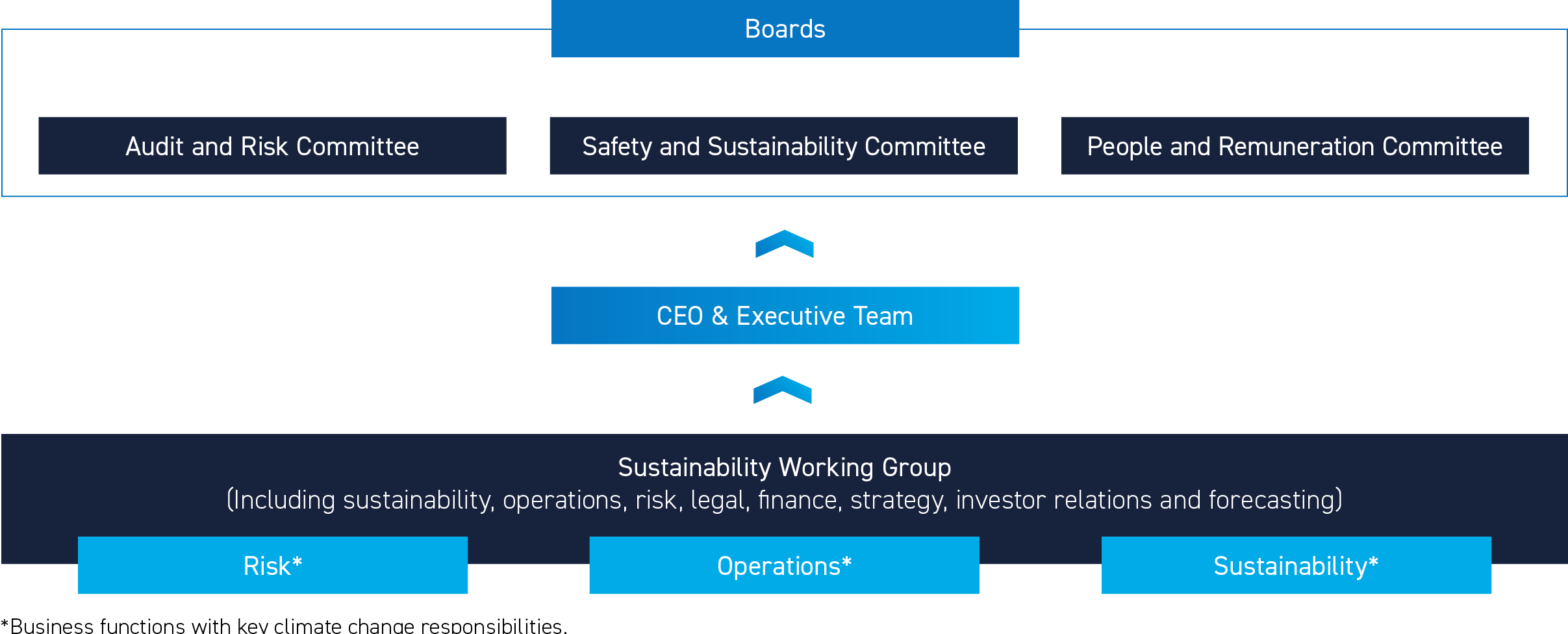Climate Governance
Embedding climate accountability across our organisation – from Board level to executive management and across key business functions.
We work to create long-term value for our stakeholders through considered and disciplined management and sustainable business practices.

Our Boards oversee all climate-related matters. They review, approve and monitor our sustainability strategy, targets and progress. The Safety and Sustainability Committee has climate-related issues and performance as a standing agenda item and undertakes an annual review of climate-related risks.

The Executive Committee directs our sustainability and climate change agenda. It oversees the delivery of our sustainability initiatives and reviews metrics and input from senior leaders, particularly from the Director of Safety, Sustainability and Risk and the Sustainability Working Group. The CEO is responsible for delivering on our climate change approach and reporting to the Boards.

The Sustainability Working Group (SWG) identifies sustainability risks and controls, with a focus on climate-related risks and opportunities. It co-ordinates business responses and supporting disclosures in line with relevant sustainability standards and legislation requirements. The SWG includes management representatives from key business areas including safety, sustainability and risk, business performance, finance and tax, legal, investor relations and forecasting.

Each of our businesses is responsible for adopting and maintaining its own environmental and social risk management framework, appropriate to the country in which it operates. Our ability to control or influence the ongoing management of these issues differs for each business and is exercised through our participation on subsidiary boards.

